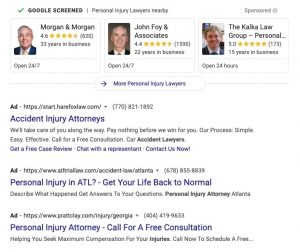— April 18, 2019
One thing that really depresses me is seeing companies and individuals put lots of effort into their blogs, when I know deep down they have little chance of success.
There are some truly mind-blowing statistics out there about blogging. While it would be impossible to give a definitive figure for the total number of blogs on the internet, we’re certainly talking about hundreds of millions. This live statistical counter tracks new posts on WordPress blogs, and shows millions of new posts being added every single day.
These statistics demonstrate a sad reality: A huge amount of the content put out online never gains traction. Competition is fierce, so if you want your blog to be one of the minority that truly gains momentum, there’s a great deal you must get right.
Perhaps more importantly, there’s a lot that you mustn’t get WRONG! With that in mind, this article looks at five mistakes I see people make time and time again. Avoid them, and your blog will have a much better chance of success.

LUM3N / Pixabay
1. A Lack of a Clear Niche
Most people have a wide range of interests, but it’s unwise to ever try to cram several diverse subjects into one blog.
A common scenario I see is someone starting a blog site with a quirky name (or under their own name), and putting lots of effort into writing their initial articles. There might be a post about their exercise regime, then a review of a reggae gig, then a list of their ten favourite books.
This may be fun to create, but it’s basically just journalling. The likelihood is that a reader interested in the music review will have no interest whatsoever in the other content. This means there’s no reason for them to subscribe, or to come back.
It also confuses the hell out of Google. Is this a music site? A reading blog? An exercise blog? These sites stand little chance of ranking for anything.
Instead, it’s important to choose a focussed niche (something I discuss in lots of detail here). A personal blog about a sprawling range of topics is all well and good as a hobby project, and family and friends will probably enjoy reading it. Sadly, the chances are that few other people ever will. Conversely, a reggae music blog or niche fitness site could attract a clear and distinct audience.
While this blogging mistake may seem more related to sites ran by individuals, it has some validity for businesses too. It makes sense for companies to ensure their blogs have a clear focus that both readers and search engines will understand.
2. Focussing TOO Much on Content
Surely a blog cannot have too much content?
Well, so long as the content is good, then that is indeed true. However, a common mistake bloggers make is to pile on the content because producing it is a more enjoyable task than promoting it.
A key part of running a blog is making sure you’re actually drawing people to your posts. Whether that means guest posting, doing traditional PR, being active on social media, or even doing some paid promotion, the important thing is that you do actually do it!
This isn’t unique to blogging. Many people in business enjoy doing the actual work more than doing the sales and marketing. However, being a blogger who does nothing but write likely means presiding over a website with depressingly few visitors.
3. Providing a Poor User Experience
We all know what it’s like to arrive on a website with a bad user interface: Excessive popups, badly chosen fonts and a poor mobile experience are all things that act as a huge turn-off. They have us reaching for the “Back” button.
It’s easy to get carried away on a blog, add lots of features and plugins, and forget that what people really want to do is consume the content without too many interruptions.
A good way to verify the quality of your user experience is to actually ask people what they think. You can survey existing readers, use professional website testing services, or merely ask family and friends. If several people agree that something should be changed, it’s wise to listen to them.
4. Excessive Selling
Often, clutter on a website is caused by excessive adverts. It’s understandable that people want to see some income from their blogs as quickly as possible, but too many ads means people are more likely to go elsewhere than earn you lots of revenue.
The same applies to excessive, “in your face” calls to action. By all means use a blog as a platform to sell products, but don’t make people feel that that’s your sole purpose, and that the blog is only there as a cynical platform for a sales message.
Over selling is at best off-putting, and at worst downright tacky. Don’t do it!
5. Bad Formatting, Spelling and Grammar
Blog readers will forgive occasional typos and errors. But if the overall quality of the content is poor, they won’t stick around.
While larger companies can hire copy editors, smaller bloggers don’t have that luxury. However, there are plenty of tools out there – from spelling and grammar checkers in Word, to services like Grammarly that can offer more specific advice on improving content.
When it comes to assessing the quality of the content on your blog, this is another area where an outside opinion is crucial. Whether this means the opinion of a professional, or just an honest friend, don’t assume everything’s up to scratch until somebody confirms it!
Many blogs don’t succeed, but some go on to big a huge hit. If you make sure you sidestep these common mistakes, yours stands a far better chance of being in the second category.
Digital & Social Articles on Business 2 Community
(71)
Report Post





